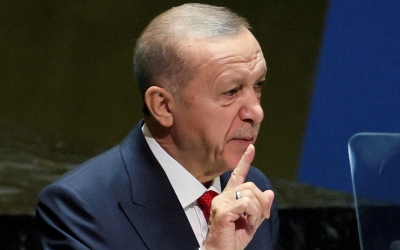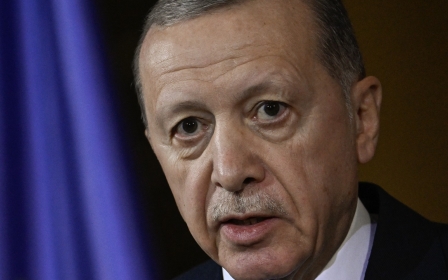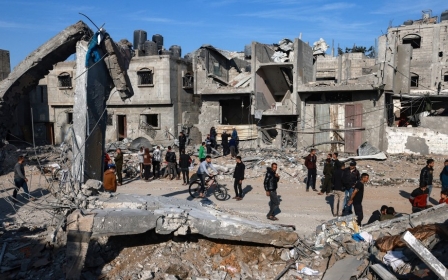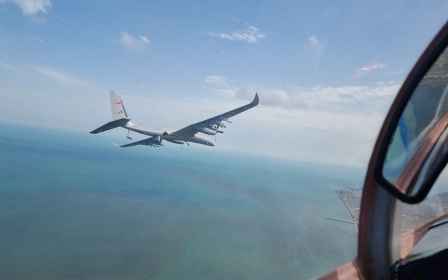Israel-Palestine war: Erdogan warns Israel of 'heavy price' if it targets Hamas in Turkey
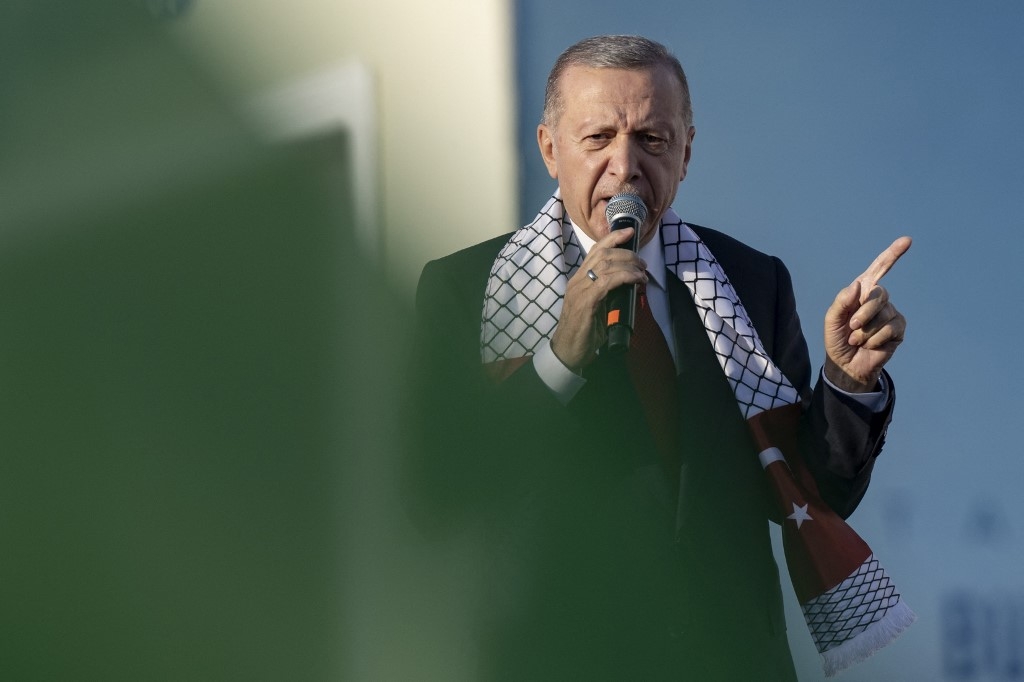
Turkish President Recep Tayyip Erdogan told Israel on Wednesday that it would pay a huge price if it tries to hunt down Hamas leaders in Turkey.
Earlier this week, Ronen Bar, the head of Israel's domestic intelligence agency Shin Bet, said in a voice recording that Israel is determined to kill Hamas leaders “in every location", including Turkey.
“In Gaza, in the West Bank, in Lebanon, in Turkey, in Qatar, everyone,” he said in recordings aired by the Kan public broadcaster on Sunday evening. “It will take a few years, but we will be there in order to do it.”
In response, Erdogan told journalists who accompanied him during a trip to Qatar on Tuesday: “They do not know the Turks. They don't know us… If they commit such a mistake, they should know that they will pay a very heavy price for it.
“If they dare to take such a step against Turkey and the Turks, they will be condemned to pay the price, never to be able to stand up again.
"Those who attempt such a thing should remember that the consequences can be extremely serious. There is no one in the world who does not know the progress Turkey has made in both the field of intelligence and security."
Hamas members living in Turkey are part of the Palestinian movement's political leadership, not part of the military wing, and many relocated to Turkey after the Gilad Shalit prisoner exchange deal in 2011.
Follow Middle East Eye's live coverage for the latest on the Israel-Palestine war
Turkey initially criticised Hamas for the 7 October attack and asked its leaders to temporarily leave the country.
However, Israel’s devastating bombing campaign in Gaza, which has seen at least 16,000 people killed, mostly women and children, has forced Ankara to take a tougher stance on Israel.
Erdogan has withdrawn Turkey’s ambassador for consultations and said Israeli Prime Minister Benjamin Netanyahu should stand trial for committing war crimes. He also accused the Israeli army of conducting a terror campaign in Gaza.
No punitive steps so far
Turkey has so far avoided taking punitive steps against Israel, as trade continues and diplomatic channels remain open.
However, the Israeli intelligence agency’s threats are risking a disruption of dialogue with Turkish intelligence, which was the architect of the recent normalisation between the two countries, beginning in 2020.
The Turkish intelligence agency, MIT, said in a statement to the media on Tuesday that it has the capabilities to thwart potential attacks.
Various news reports in the past year have indicated that Turkey exposed and arrested spy rings run by Israeli intelligence officers to collect information on Palestinians living in Turkey.
Since the conflict erupted, Erdogan has repeatedly offered to play the role of middleman and help negotiate an end to the hostilities.
He also said on Tuesday that Ankara is ready to host an international conference to discuss its proposal of “guarantor system” to the conflict, and support a two-state solution based on the 1967 borders, as suggested by international law.
Relations between Israel and Turkey improved late last year with the countries exchanging ambassadors, following years of security and intelligence cooperation.
Ties between the two first soured in 2011, when Turkey expelled Israel's ambassador after a UN report into Israel's raid on the Mavi Marmara aid ship to Gaza in 2010, which killed nine Turkish nationals.
The rift was healed in 2016 when full diplomatic relations were restored and both countries reinstated their ambassadors.
Tensions were renewed in 2018 when Israeli forces killed scores of Palestinians taking part in the Great March of Return protests in Gaza. The protesters demanded the implementation of the right of return and an end to the crippling siege on Gaza.
Middle East Eye propose une couverture et une analyse indépendantes et incomparables du Moyen-Orient, de l’Afrique du Nord et d’autres régions du monde. Pour en savoir plus sur la reprise de ce contenu et les frais qui s’appliquent, veuillez remplir ce formulaire [en anglais]. Pour en savoir plus sur MEE, cliquez ici [en anglais].


